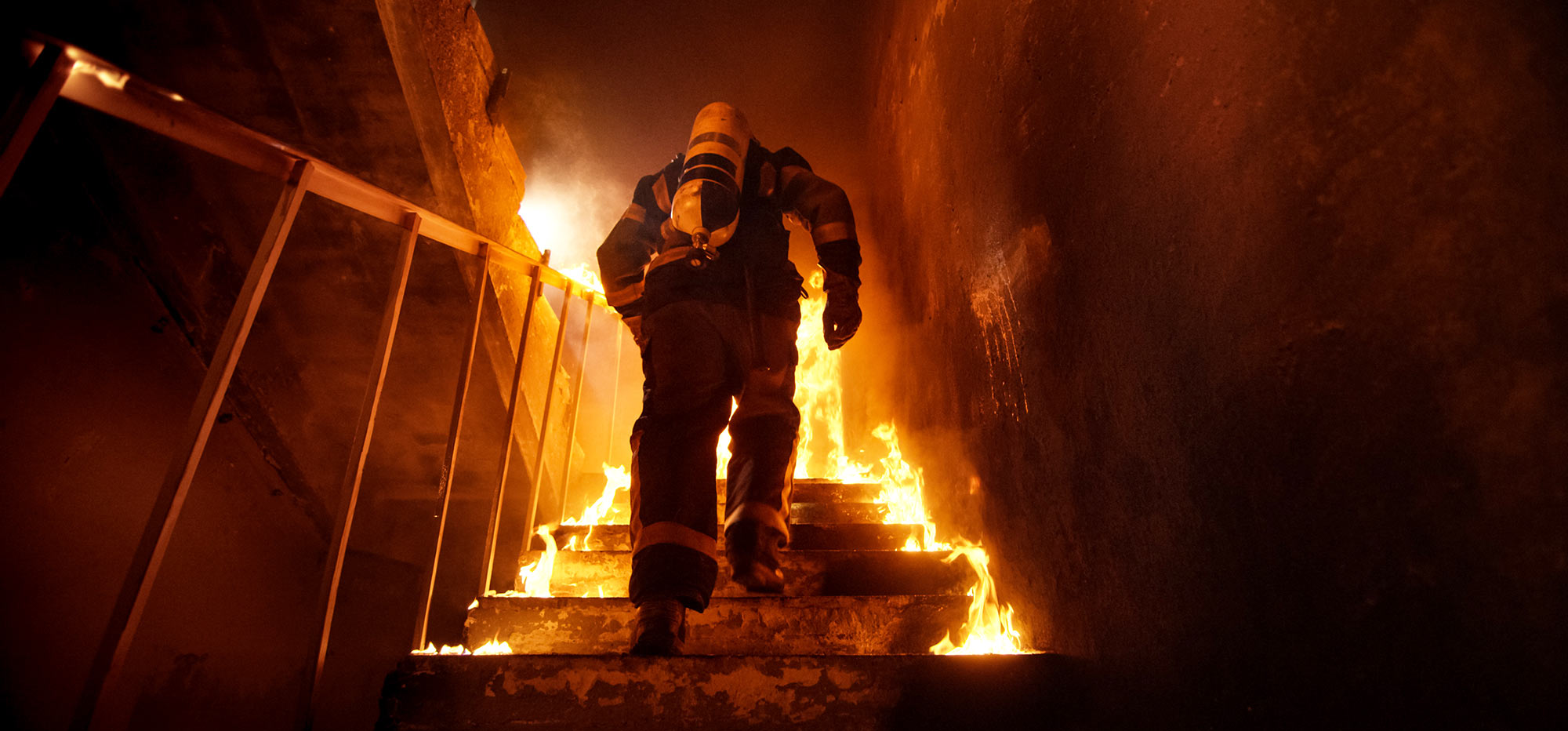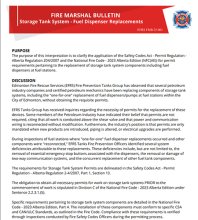Fire safety is everyone's responsibility. Being prepared is your best defence against a fire in your home.
Whether you live in a high-rise apartment, condominium, townhouse, multi-family or single-family residence, there really is no place like home. It's a place where we can let our guard down and relax, which is why we need to keep our homes as fire-safe as possible.
Be Fire Safe Resources
The majority of fire injuries, deaths and negative environmental impacts can be prevented by following a few simple fire safety tips and knowing about potential hazards.
Fire Safe Flip Book
Prevention and safety tips including smoke alarms, carbon monoxide, candles, cooking, smokering, fire pits, barbecues, heating, safety for children, electrical, escape planning, recovery and contacts.
Barbecuing
Grilling in the garage, even with the door open, does not allow for enough ventilation and could cause an accumulation of carbon monoxide.
Candles
A candle is an open flame, meaning that it can easily ignite anything that can burn.
Never leave a burning candle unattended.
Carbon Monoxide
Carbon Monoxide (CO) is an odourless, colourless, toxic gas. Exposure can cause dizziness, headache, nausea, fatigue, burning eyes, vomiting and loss of muscle control.
Detectors, Hazards and Exposure
ATCO Checklist
Christmas
Unplug all decorative lights before leaving your home or going to bed.
Cooking
Most destructive fires start in the kitchen when cooking is left unattended.
Keep a lid and a fire extinguisher within easy reach.
Electrical
Be aware of the warning signs and keep an eye out for potential problems such as plugs and sockets that feel hot to the touch.
Escape Planning
In the event of a fire, you will not have time to consider your escape options, so it is important to practice your escape plan regularly.
Always know 2 ways out, and once you're out - stay out.
Fire Pits
Fire pits are regulated and must meet the standards outlined in the Community Standards Bylaw.
Building a Proper Fire Pit
Fire Pits and Campfires
Fireworks
The use of fireworks without a permit is in violation of the City of Edmonton bylaws and may result in fines or prosecution.
Fireworks Permits and Safety
Home Heating
As we begin to heat our homes again, ensure that your smoke alarms and carbon monoxide alarms are working properly.
Seasonal Fire Safety
Equipment: Alarms, Detectors, Extinguishers
Lithium-Ion Batteries
If these batteries are damaged, not used correctly or disposed of incorrectly, there is a risk they can catch fire or explode.
Smoke Alarms
A working smoke alarm is your first line of defence if there is a fire in your home. Replace the batteries a least once year.
Smoke Alarm Safety Sheet (translated versions)
Smoking
Never extinguish smoking materials in plant pots, potting soil, peat moss or other types of soil. Cigarettes and other smoking materials that are not properly extinguished can smoulder undetected for days before igniting a fire.
Smoking Safety
Arson Prevention
Arson is the crime of any wilful or malicious burning or attempt to burn, a dwelling, house, public building, motor vehicle, aircraft, or personal property of another.
Arson has been the leading cause of fires in Edmonton for more than a decade. It accounts for roughly one-third of all working fires that Edmonton firefighters respond to annually. Edmonton Fire Rescue Services is working with all levels of government, community groups, business leaders, municipal departments, other fire services, Mental Health and Health Care groups, police agencies and the public to reduce arson in our community.
- Become familiar with your neighbours
- Watch out for each other's properties, especially when away on vacation
- Write down license plate numbers of suspicious vehicles and get descriptions of suspicious persons to report to Edmonton Police Services
- Encourage Neighbourhood Watch members to patrol their respective communities to locate abandoned homes and buildings and report these to city officials
- Clean up your property and yard of materials that an arsonist could use to start a fire (such as piles of brush, garbage, used furniture or old vehicles)
- Clean up the neighbourhood by removing garbage, flammable liquids, gasoline containers and abandoned vehicles
- Secure the doors, windows or other openings located in abandoned homes and buildings
If your child has misused fire, deliberately started a fire or if you are concerned about your child's interest in fire, please consider our Y-FIRE Program.
- Install motion sensors to illuminate the building exterior and entrances
- Keep trees and shrubs trimmed, especially around windows and entrances, so that passing patrols can have an unobstructed visual of the building
- Ensure that there are proper lock-up procedures
- Limit the number of congregation members who have keys or access codes
- Install security systems
- Consider hiring a private security firm to frequently patrol the building and grounds
- Keep congregation members informed of problems
- Appoint a member to be a liaison with Fire and Police agencies
- Promote Neighbourhood Watch programs
- Teach students to respect fire
- Establish a Crime Stoppers program within the school where students can anonymously report crimes
- Ensure that the building is well lit and install motion sensor lighting on exterior walls
- Install skirting and secure venting on portable classroom facilities
- Consider installing fencing to close off alcoves and narrow spaces between buildings to deter vandals
- Have alarm systems and automatic extinguishing systems tested by an authorized company
- Continue to conduct regular fire drills
- Place dumpsters and sporting equipment storage facilities well away from the main building
- Complete an annual arson inspection of your business and site
- Remove or reduce the targets for arson, such as piles of debris on the premises
- Review your lock-up procedures and housekeeping practices
- Increase security with video cameras, motion sensor lighting, monitored security systems, and swipe card or code entry access for managers and employees
Report a Concern
If you see an activity, place or thing that is a fire hazard or safety code violation, please report it to Fire Prevention at 780-496-3628 or submit your concern using the Fire Safety Concern Form.
Report a Fire Safety Concern
Types of fire hazards and safety code violations:
-
Recreational fire pits that don't meet requirements
-
Open burning without a permit
-
Residential buildings that don't meet fire and smoke detector requirements
-
Children playing with matches
Contact Us
Fire Prevention Office
Hours: Monday to Friday, 8am to 4:30pm (Closed on weekends and statutory holidays)
| Telephone | 780-496-3628 (voicemail only) |
|---|---|
| fireprevention@edmonton.ca |



